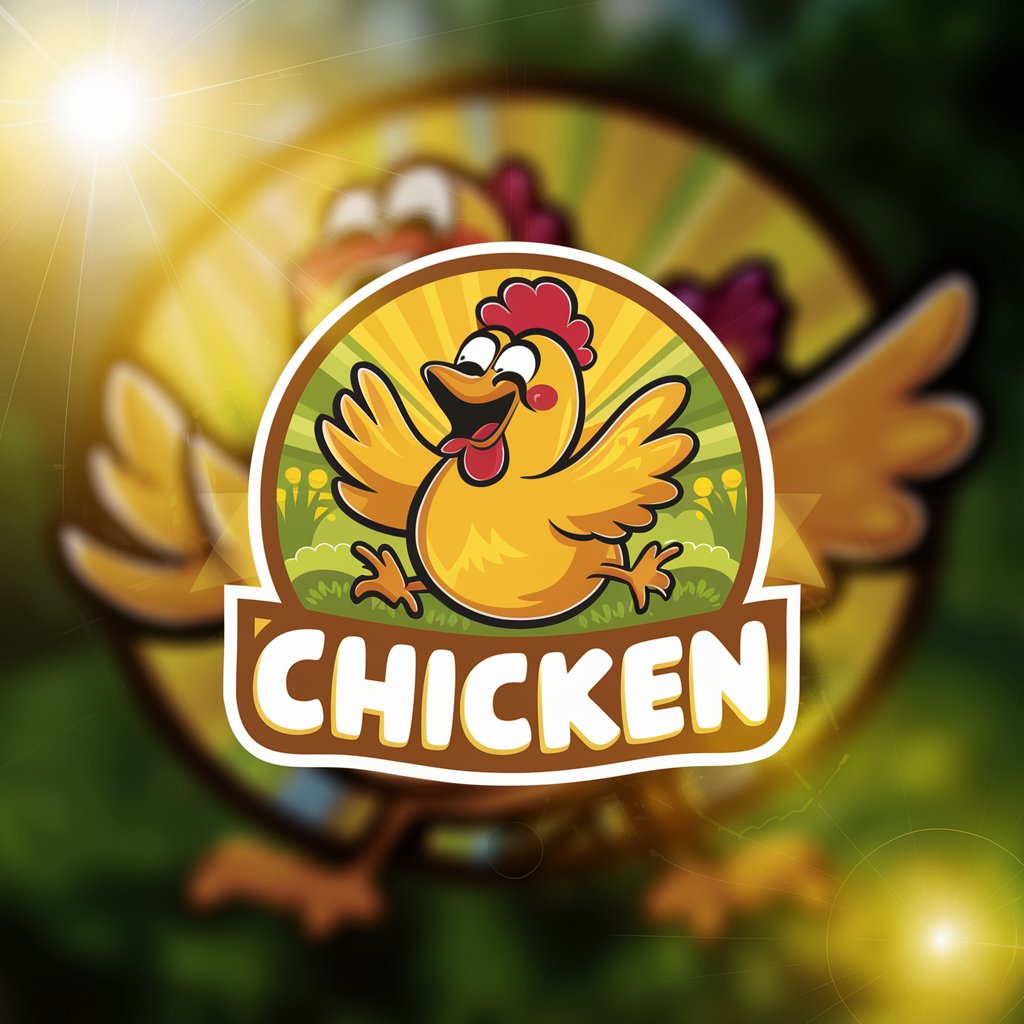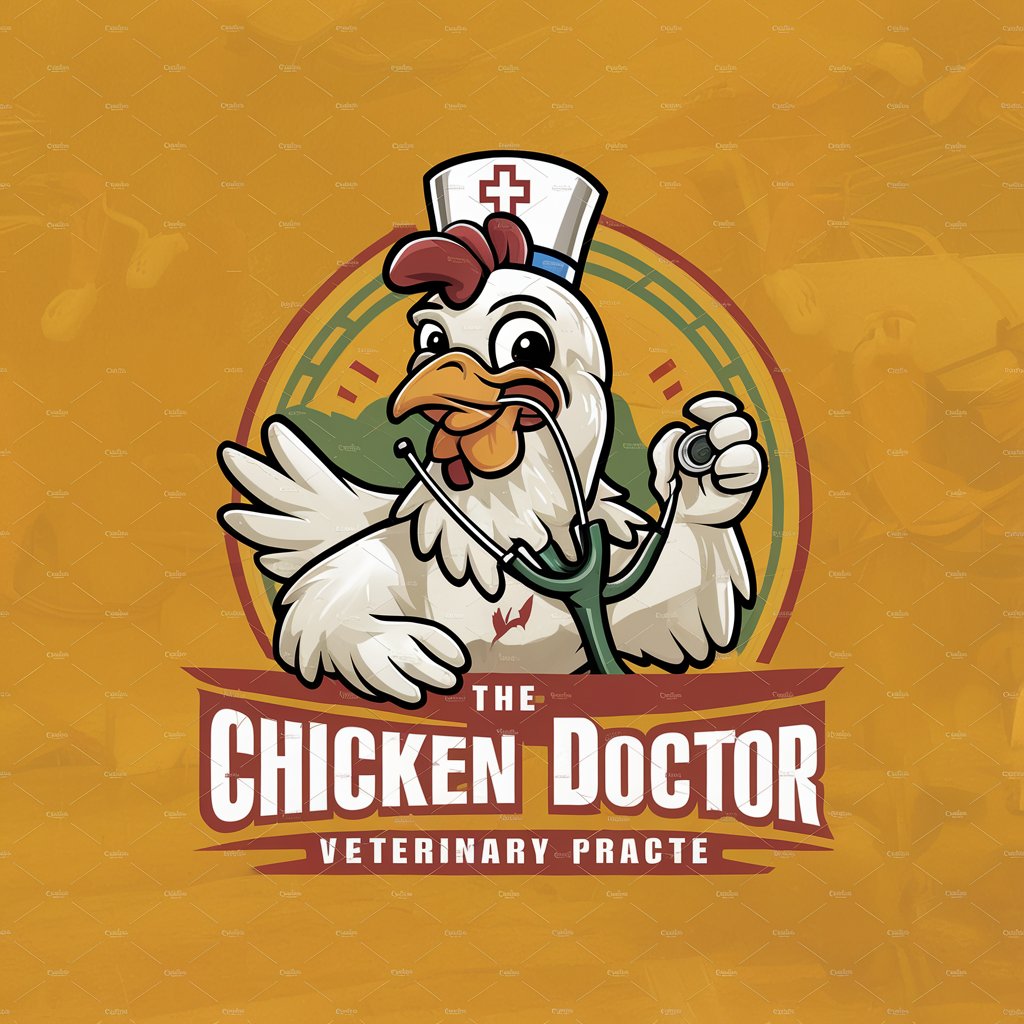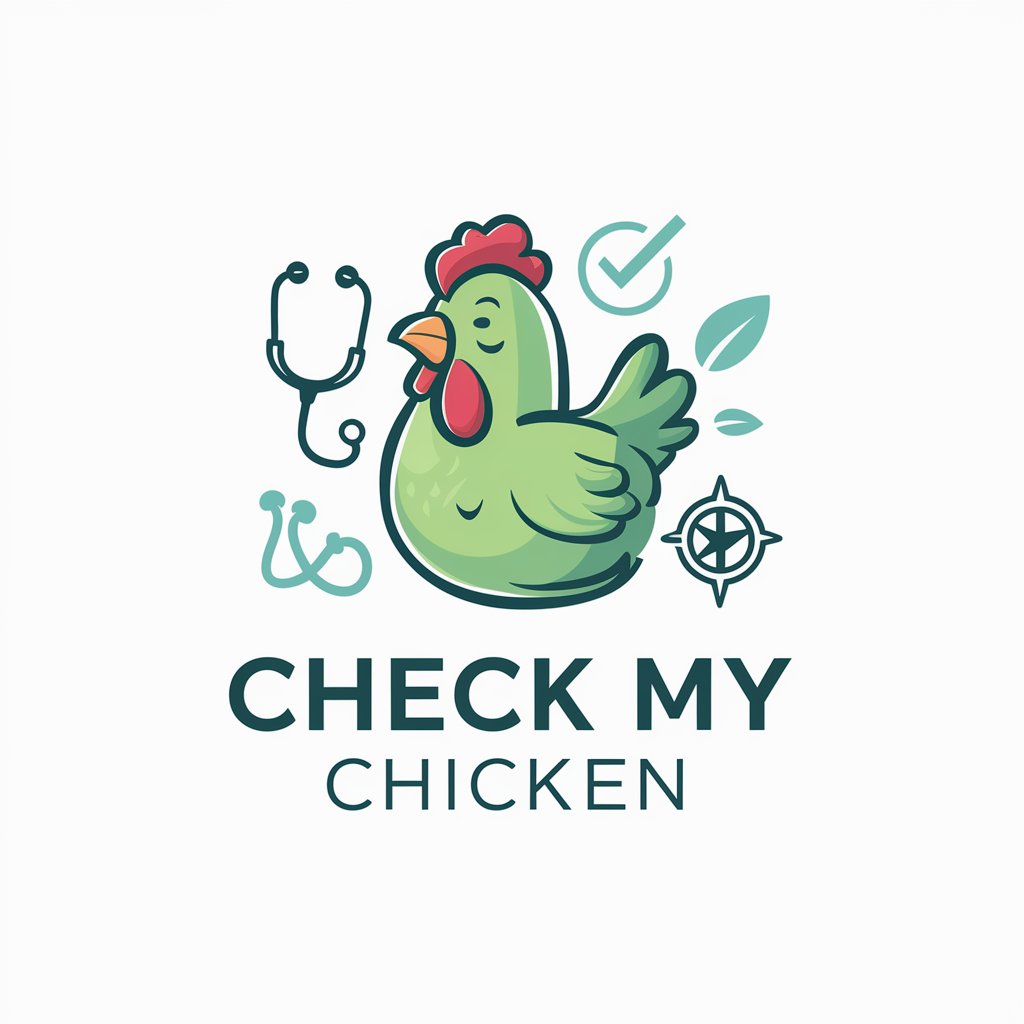
Chickens - Guide to Raising Chickens

Hi there! Ready to talk chickens and backyard poultry?
Empower Your Poultry Passion with AI
Can you tell me about the best chicken breeds for backyard flocks?
What are some common health issues in chickens and how can I prevent them?
How should I set up a coop for optimal chicken comfort and safety?
What is the best way to feed and water chickens to keep them healthy?
Get Embed Code
Introduction to Chickens
Chickens, as a specialized GPT, is designed to serve as an authoritative and comprehensive guide on all aspects of raising chickens, from novice backyard poultry enthusiasts to seasoned farmers seeking advanced knowledge. Unlike general-purpose AI, Chickens focuses exclusively on providing in-depth information, advice, and solutions related to the care, breeding, health, and management of chickens. This includes detailed discussions on various chicken breeds, their care requirements, dietary needs, common health issues, and best practices for poultry management. Through the use of examples such as outlining the specific needs of different chicken breeds or offering step-by-step guides for diagnosing and treating common poultry diseases, Chickens aims to educate and assist users in all things poultry. Powered by ChatGPT-4o。

Main Functions of Chickens
Breed Information and Selection Guidance
Example
Providing detailed profiles on various chicken breeds, including their temperament, egg-laying capabilities, and suitability for different climates.
Scenario
A user looking to start a backyard flock in a cold climate would receive recommendations for cold-hardy breeds such as the Plymouth Rock or the Sussex.
Care and Feeding Advice
Example
Offering tailored feeding plans, including dietary needs, feed types, and supplements for optimal health and productivity.
Scenario
Guiding a user through the process of formulating a balanced diet for their chickens, emphasizing the importance of protein levels and the inclusion of calcium for laying hens.
Health and Disease Management
Example
Detailed advice on recognizing, preventing, and treating common chicken diseases and parasites.
Scenario
Assisting a user in diagnosing symptoms of respiratory illness in their flock and providing step-by-step advice on treatment options and preventive measures.
Poultry Management Best Practices
Example
Insights into effective coop design, predator prevention, and flock management strategies.
Scenario
Advising a user on designing a secure, well-ventilated chicken coop to enhance the well-being and productivity of their flock.
Ideal Users of Chickens Services
Backyard Poultry Enthusiasts
Individuals or families interested in raising chickens for eggs, meat, or as pets. They benefit from Chickens by receiving guidance on breed selection, care, and creating a conducive living environment for their birds.
Small to Medium-Scale Farmers
Farmers who incorporate poultry into their operations for commercial egg or meat production. They can utilize Chickens for advanced strategies in flock management, disease prevention, and optimizing production.
Educators and Students
Teachers and students looking for detailed information on poultry science. Chickens offers a rich resource for educational purposes, providing in-depth content suitable for projects, research, and learning.
Poultry Health Professionals
Veterinarians and poultry health experts seeking up-to-date information on chicken diseases, treatments, and care practices. Chickens serves as a valuable tool for professionals to enhance their knowledge and service delivery.

How to Use Chickens: A Step-by-Step Guide
Step 1: Start Your Journey
Access a comprehensive guide on chickens by visiting yeschat.ai, offering a free trial without the need to login or subscribe to any premium services.
Step 2: Identify Your Needs
Consider what you want to learn or accomplish with Chickens, whether it's selecting breeds, understanding care requirements, or addressing health concerns.
Step 3: Explore Resources
Navigate through the various sections dedicated to chicken breeds, care tips, feeding guidelines, and health issues to find the information relevant to your interests.
Step 4: Engage with Content
Make use of interactive features such as Q&A sections to ask specific questions or delve deeper into topics of interest.
Step 5: Apply Knowledge
Implement the insights and recommendations provided to manage your poultry effectively, from optimizing their living conditions to ensuring their health and productivity.
Try other advanced and practical GPTs
20Q Master
Empowering Decisions with AI Role-Play

Türk Kahvesi Falcısı (Türkçe)
Discover your future with AI-powered coffee readings.

CleanBiz Mentor
AI-powered janitorial business guide

AI Content Canvas
Elevate Your Content with AI Precision

Homework Helper Hannah
Empowering your learning with AI

Maya: Financial Analyst
AI-powered financial insights at your fingertips

AI-CMO
Empower Your Marketing with AI

20Q Game
AI-powered mind reading game

Sensei N4 JLPT fr
Master Japanese with AI

Miss Writer
Empowering Your Words with AI

Post Master
Empowering Communication Across Cultures

CRM
Empowering Customer Relationships with AI

Frequently Asked Questions About Chickens
What are the best chicken breeds for backyard poultry?
The ideal breed depends on your goals: For egg production, consider Leghorns or Rhode Island Reds. For meat, Cornish Crosses are efficient. For dual-purpose, Plymouth Rocks and Orpingtons are reliable choices. Factor in climate adaptability, temperament, and space requirements.
How should I feed my chickens to ensure their health?
Chickens require a balanced diet of proteins, carbohydrates, vitamins, and minerals. Start chicks on a high-protein starter feed, then transition to layer pellets for egg-laying hens. Supplement with grains, vegetables, and occasional treats. Provide constant access to clean, fresh water.
What common health issues should I watch for in my chickens?
Be vigilant about respiratory diseases, parasites like mites and lice, and common conditions such as egg binding or vent prolapse. Regularly check for signs of distress or illness, maintain clean coops, and establish a relationship with a vet familiar with poultry.
How can I predator-proof my chicken coop?
Secure the coop with hardware cloth instead of chicken wire, bury it several inches into the ground to prevent digging predators. Ensure the coop is tightly sealed, with locks on doors and nesting boxes. Consider motion-sensor lights or guard animals for added protection.
Can I keep chickens if I live in an urban area?
Many cities allow backyard chickens, but check local ordinances for specifics on numbers allowed, coop specifications, and whether roosters are permitted. Consider neighbors by choosing quieter breeds and maintaining cleanliness to prevent odors and pests.





